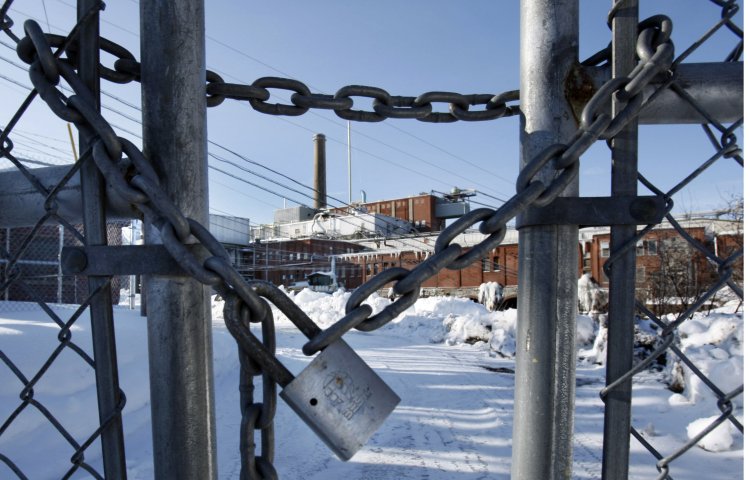A company that hopes to build a biofuel refinery on the site of a former paper mill in East Millinocket has obtained a temporary restraining order barring the owner from selling to other parties and also limiting ongoing demolition at the site.
The order, granted by U.S. District Judge Jon D. Levy in Portland, alleges that North American Recovery Management, a Florida company that bought the mill after efforts to keep it operating as a paper mill fell apart, is ignoring an agreement to sell the property to EMEP, the company that wants to use woody biomass to create fuel.
According to the order, North American Recovery is preparing to accept new offers on the property while continuing demolition work at the site. EMEP alleges that North American Recovery is ignoring the binding letter of agreement to sell the property to the proposed refinery developers.
The order also says the demolition work endangers some of the buildings on the property that EMEP wants to use in its refinery project, which could supply dozens of direct jobs in the area and perhaps hundreds of indirect and construction jobs.
North American Recovery specializes in buying industrial property, demolishing assets on the site and selling them for scrap and then reselling the property.
The mill was once one of the state’s top paper producers, employing 4,000 people at its peak.
Katahdin Paper idled the mill in early 2011, putting 450 people our of work. Later that year, the mill received a reprieve when it was purchased by New Hampshire investment firm Cate Street Capital, which reopened the mill in October 2011 and rehired 250 people. The firm also revived the mill’s original name, Great Northern Paper.
But despite getting $40 million in taxpayer-backed financing, the operators closed the mill in February 2014, citing high energy and wood costs.
Cate Street Capital’s financial dealings were the subject of a Portland Press Herald/Maine Sunday Telegram investigation that revealed abuses of Maine’s New Markets tax credit program, under which the financing was arranged. The tax credit program underwent legislative and administrative scrutiny, and some loopholes were closed.
The injunction bars North American Recovery from selling the property and engaging in any demolition beyond a land use permit that was issued Feb. 1.
Send questions/comments to the editors.



Success. Please wait for the page to reload. If the page does not reload within 5 seconds, please refresh the page.
Enter your email and password to access comments.
Hi, to comment on stories you must . This profile is in addition to your subscription and website login.
Already have a commenting profile? .
Invalid username/password.
Please check your email to confirm and complete your registration.
Only subscribers are eligible to post comments. Please subscribe or login first for digital access. Here’s why.
Use the form below to reset your password. When you've submitted your account email, we will send an email with a reset code.